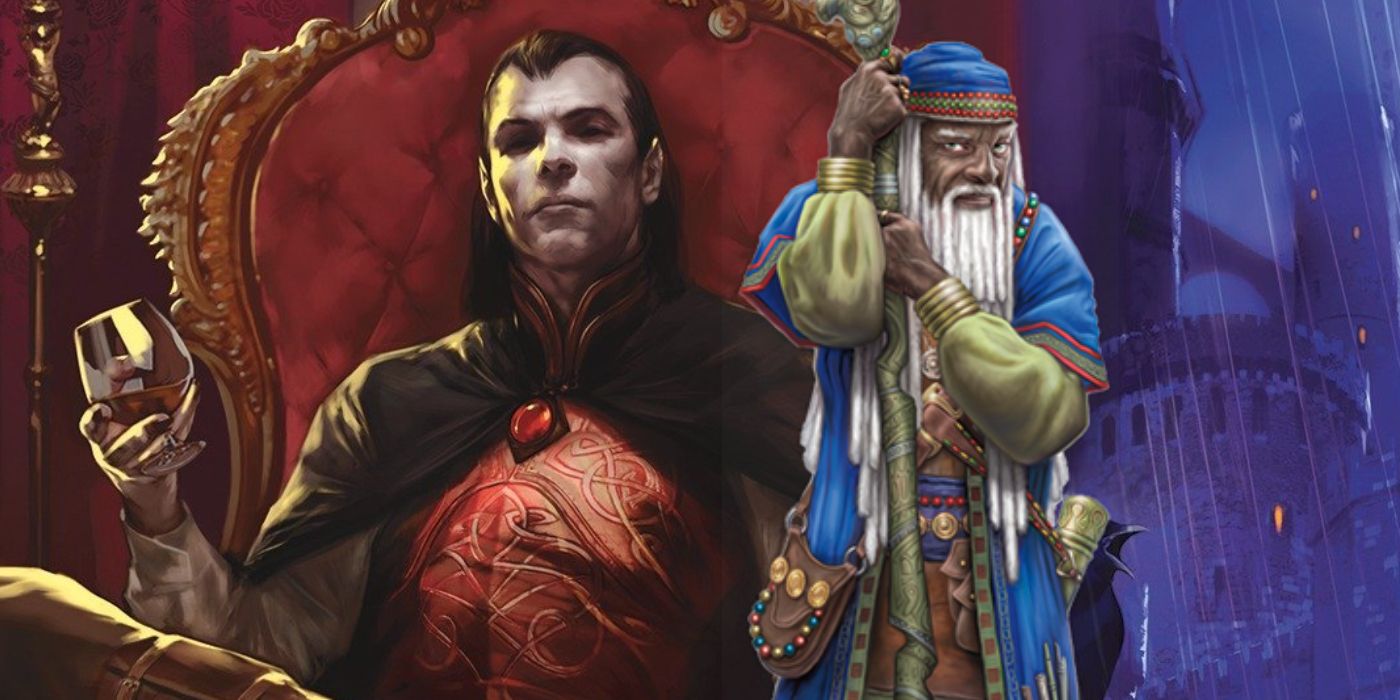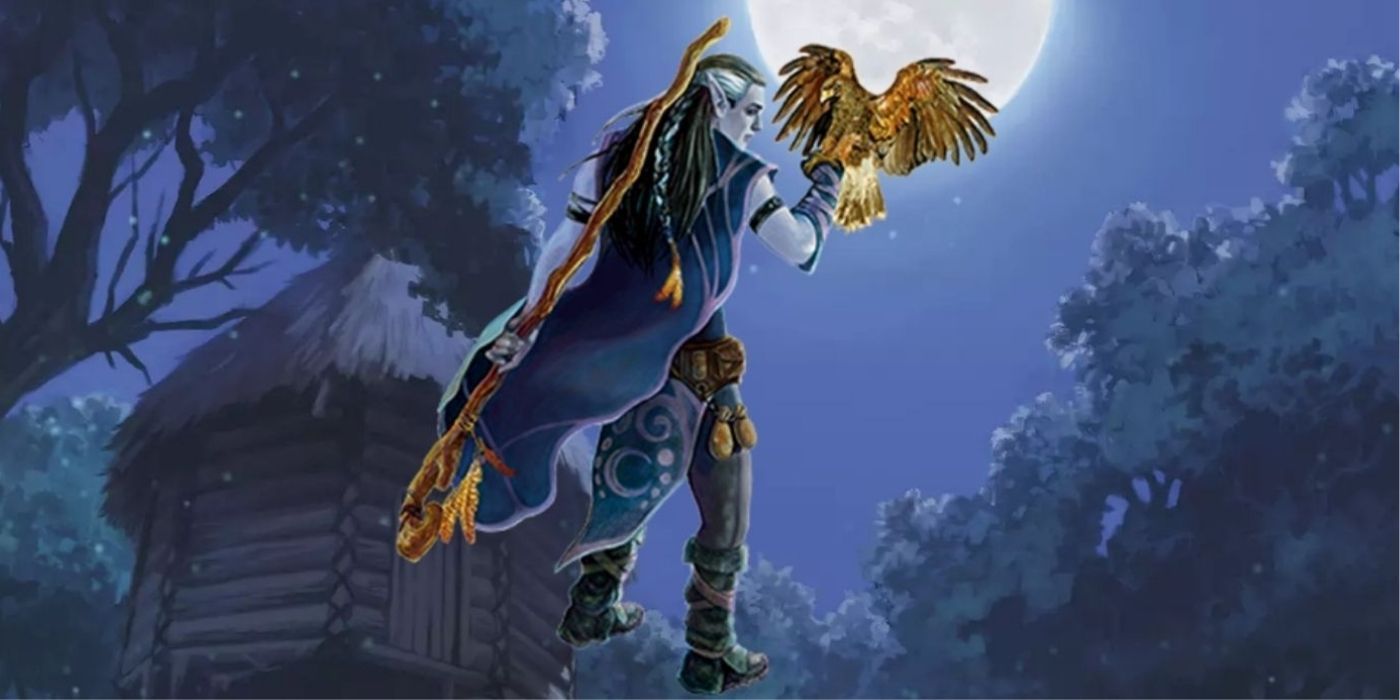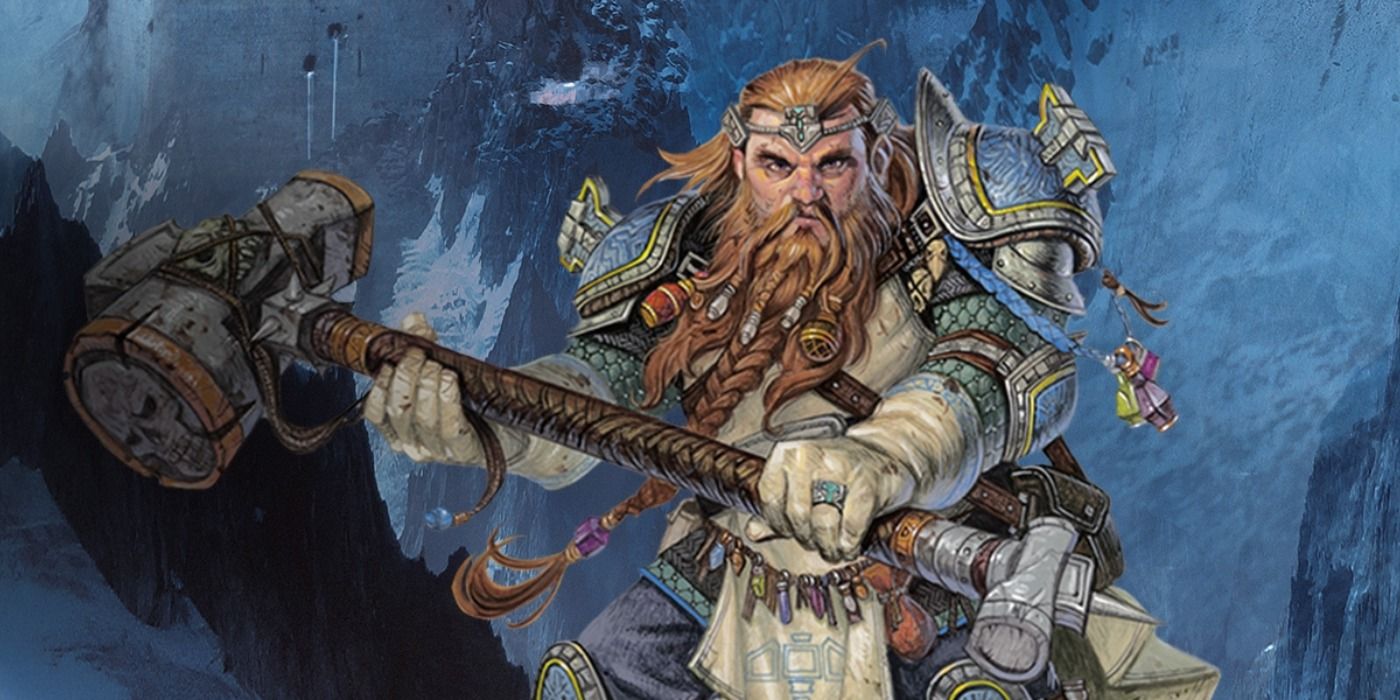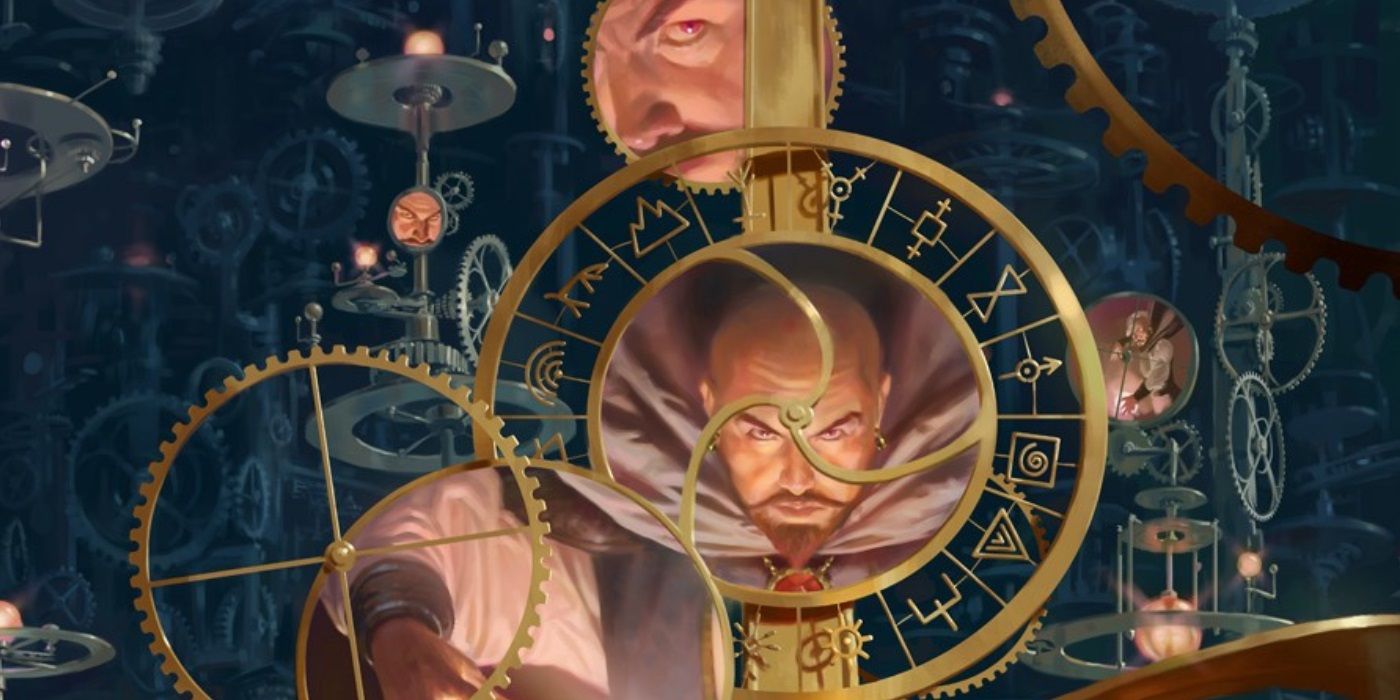One of the most unique aspects of Dungeons & Dragons is the possibility for a player's characters to die at any time during the adventure. Having a mortal character raises the stakes for players and encourages them to take extra precautions during each session. For D&D players uncomfortable with the thought of losing a character they have put so much time into, there are ways to cheat death indefinitely.
The definition of immortality within Dungeons & Dragons is tricky, especially considering the many different spells and abilities creatures have access to. Many enemies considered "immortal" in D&D can usually be defeated with careful planning, and the same could be said about players looking to become invincible.
That said, there is nothing wrong with reducing the chances of a character being lost forever, and there are plenty of options to do exactly that. Here are a few ways D&D players can try to keep their characters from dying.
How To Prevent Aging In Dungeons & Dragons
Even in the magical world of Dungeons & Dragons, old age can threaten a character. Luckily for players, there are plenty of ways to reduce aging, or even stop it entirely. At level, 18 Druids receive the Timeless Body feature, which allows them to age only 1 year for every 10 years they live. Although this doesn't stop aging completely, it allows high-level Druids to live for an absurd amount of time without seeing their health deteriorate.
For characters that are not Druids, it is also possible to obtain a Potion of Longevity. Drinking this potion allows a character to become 1d6 + 6 years younger, although it also has a 10% cumulative chance to increase their age instead, meaning it should not be used too often.
Paladins who take the Oath of The Ancients may be the better choice when compared to Druids. Beginning at level 15 they suffer "no drawbacks of old age." Although many rules in D&D are left for a group to interpret themselves, it is easy for argue that death is a clear drawback of age. Unfortunately for Oath of the Ancient Paladins, even a lack of aging does not make them truly immortal, since they can still be killed in an "unnatural" fashion.
If a player wants a permanent way to prevent aging, as well a better chance to survive being killed in combat, they could become a vampire. Becoming a vampire has a number of drawbacks, the most important being a weakness to sunlight, but it also gives them impressive survivability. Not only do vampires cease aging, but they can also transform in to a cloud of mist after being reduced to 0 health points. This allows them to escape to a safe place and means they can survive combat even if they are defeated. While there are still dangers to be wary of, especially when interacting with more perceptive NPCs, vampirism offers plenty of unique powers (as long as the DM permits it).
How To Be Resurrected From Death In Dungeons & Dragons
Finding ways to cheat death caused by combat is difficult in Dungeons & Dragons - and for good reason. Combat is many people's favorite part of playing D&D, and allowing a character to become invincible could suck the fun out of a campaign. With that said, there are plenty of spells that allow a player's character to return to life, such as Revivify or Raise Dead. Although useful, these spells have limitations based on the time since death and the cost of materials needed to cast them. Although these limitations make resurrection spells impractical to use regularly, there is an exploitable exception.
Xanathar's Guide to Everything introduced many new subclasses to D&D, including the Path of the Zealot for Barbarians. One key feature for Zealots is that, starting at the third level, spells that return them to life can ignore material components. Although this feature may seem like a minor one at first, it becomes incredibly powerful, so long as the D&D party includes a reliable healer (who can reliably stay alive). They are still reliant on another player, but Zealot Barbarians can essentially ignore the risk of death every time they charge into battle.
How To Become Truly Immortal In Dungeons & Dragons
As campaigns move into higher levels of play, the spells and abilities players have access to become more and more overpowered. It is at these higher levels that true immortality becomes a possibility, especially for certain spellcasters.
The eighth level spell Clone allows the player to create a copy of any living creature, including that player's character. This clone "endures indefinitely" as long as it remains in the same vessel, and, after the character dies, their soul can be transferred to this new body. The new body requires 120 days to mature, and the spell is also expensive. But with careful planning, Clone will allow a character to repeatedly live through their body's death.
For players who believe that becoming ageless or being resurrected do not count as complete "immortality," there is one final option available: Wish is, theoretically, the most powerful spell in Dungeons & Dragons, and it could be the answer to avoiding death entirely. Outside of the effects outlined by the Player's Handbook, Wish can accomplish nearly anything with the Dungeon Master's discretion, so it could make a character live forever. However, in the spirit of the game, a Dungeon Master would likely implement some sort of "catch," and there is not telling what sort of consequence there could be for wishing to live forever. Although searching for immortality might seem like the safest thing a character could do, it may turn out to be the riskiest.
Whether a player is new to the game or a veteran, seeing their character die in Dungeons & Dragons is heartbreaking. Losing hours of experience, equipment, and memories thanks to a few unlucky rolls during an encounter can happen to anyone, and it is difficult for a player and their party to recover from it. Attempting to achieve immortality could not only make a character much safer but also allow them to explore some of the unique mechanics Dungeons & Dragons has to offer.




